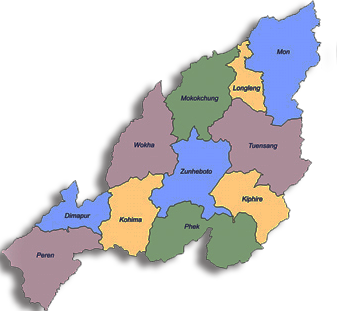By: Branko Marcetic
No one should’ve honestly believed Elon Musk would use his ownership of Twitter to champion free speech. Besides the fact that the man is a professional bullshitter, it was always dubious that a guy who slaps employees with gag orders and bars them from wearing pro-union messages had a genuine commitment to the proverbial marketplace of ideas.
No one is more eager to hawk the idea of Musk as a free-speech warrior, of course, than Musk himself, who framed his growing entanglement in the social media platform around defending the principle, and recently retweeted a satirical headline charging that he’d “threaten free speech on Twitter by literally allowing people to speak freely.” Reportedly telling staff he wanted the platform to be “the digital town square” by “represent[ing] people with a wide array of views even if we disagree with those views,” Musk has reinstated a spate of reactionary Twitter accounts that had been suspended, including those of Jordan Peterson, Project Veritas, and former president Donald Trump.
But it’s looking more and more like the Tesla CEO’s supposed commitment to free expression only goes as far as his own political biases. At the same time that Musk has been playing footsy with noxious right-wing figures and giving a voice back to their faves, he’s also banned a string of left-wing accounts ― seemingly at the prodding of those same noxious voices.
Left-wing accounts being suddenly and inexplicably banned is sadly nothing new on Twitter. But what makes this instance more disturbing is that it immediately followed an exchange Musk had with far-right influencer Paul Ray Ramsey – seen here posing with neo-Nazi Richard Spencer at a conference they both spoke at – whose post about Twitter “nuking pedo accounts” led Musk to personally urge the video blogger to report “anything that Twitter needs to address.”
He also had an exchange with right-wing troll Andy Ngo, known for his lie-filled vendetta against antifa. Told by Ngo that “a large number of Antifa accounts operate on Twitter” to incite various acts of violence, Ngo and the Twitter CEO then had a back-and-forth about the importance of reporting and suspending such accounts. It ended with Ngo singling out CrimethInc for trying to “radicalize people into criminal militancy,” pointing to a number of anodyne social media posts by the group, the most edgy of which was a zine about breaking windows and “the effectiveness of political vandalism.” Within a few hours, the account was suspended.
This wasn’t an isolated event. Journalist Steven Monacelli documented the suspensions of several more leftist accounts in recent days, including the Elm Fork John Brown Gun Club (EFJBGC), an armed left-wing group that goes to LGBTQ events that far-right militants, including some armed groups, plan to attend; Vishal Singh, a left-wing journalist and documentarian based in California who reports on the far right and law enforcement; and Chad Loder, a Los Angeles–based cybersecurity expert who used his Twitter feed to expose and document the activities of right-wing extremists. All of this came just a few days after Musk claimed it was “obvious” that “there is not one permanent ban on even the most far left account spouting utter lies.”
It’s unclear how much of this is a reflection of Musk’s true long-standing political leanings, or if he’s taken a similar journey of Twitter-fuelled political derangement to other high-profile figures, ensconcing himself in a right-wing intellectual bubble that now drives his thinking. In any case, after once making the questionable claim that Twitter “has a strong left wing bias,” Musk now seems to have decided the solution is giving it a strong far-right bias instead.
It’s also not clear how much of this anti-left censorship is due to Musk personally. But besides his personal interaction with reactionaries who have pushed to suppress groups they politically disagree with, we know Twitter’s content moderation team was explicitly ordered to reinstate the conservative satirical outlet Babylon Bee ― whose ban had first prompted Musk to muse about buying the platform ― hours after he took ownership. We also know that Musk told employees last week that his planned content moderation council would be purely advisory, and that he would “either agree with it or I won’t,” suggesting a more hands-on approach from the CEO on the subject of censorship.
The real problem is that, in the society and economic system we’ve created, a moron can take over a critical public resource like Twitter on a whim, as long as he or she has an enormous hoard of wealth that this system has allowed them to accrue, at which point they’ll promptly inject their own blinkered biases into the way the platform operates.
This is why voices on the Left have not just warned about the dangers of resorting to excessive, heavy-handed censorship on such platforms, since changes in ownership, individual biases, and human error all mean speech one personally doesn’t object to can become a target for suppression. They’ve also called for public ownership, or at the very least greater state regulation, of platforms like Twitter that have clearly become integral to life today, to provide some modicum of democratic control over them and save us from the whims of erratic billionaires.
Other possible solutions don’t seem so promising. Some have fled Twitter in protest and joined “decentralized” alternatives like Mastodon, where groups and individuals can make their own servers with their own particular rules. Yet among other things, this potentially just repeats the situation with Musk on a smaller scale, as antiwar group Code Pink recently found when it was banned from a Mastodon server by a moderator who had “received reports the organisation was affiliated with some less than savoury groups” and was deemed “potentially controversial.”
Musk is now facing an advertiser revolt, and one advertiser, the tech behemoth Apple, has, according to the billionaire, “threatened to withhold” the platform from its App Store, a potentially powerful blow to Twitter’s market share if true. This could in theory force a change to Musk’s policies by essentially strong-arming him into backing down. But do we really want the rules that govern social media platforms dictated instead by similarly unaccountable corporations using their economic heft or, in Apple’s case, their monopoly power to force a change to policies they don’t like?
Remarkably, in spite of all this, the liberal discourse around Musk’s helming of Twitter continues to be framed in exactly the (untrue) way that he prefers it: of Musk as an overzealous free-speech champion, endangering the world through his commitment to a principle that he’s shown he doesn’t actually give a damn about. This hail of misguided and reality-divorced liberal criticism ironically gives Musk the exact cover he needs, convincing the uninformed he really does walk the walk on free speech, and allowing him to keep tweeting self-aggrandizing nonsense like, “This is a battle for the future of civilization. If free speech is lost even in America, tyranny is all that lies ahead.”
Yet that tyranny is already here, largely thanks to the figure of Musk himself, and to the kind of society that lets those with wealth treat vital public goods as their own personal playpens. There’s a real conversation to be had about how exactly to strike the tricky balance between protecting free expression on social media platforms and providing a safe and enjoyable user experience. But to have that conversation, we have to wrench control of this digital public square from censorious billionaire frauds like Musk first. (IPA Service)








